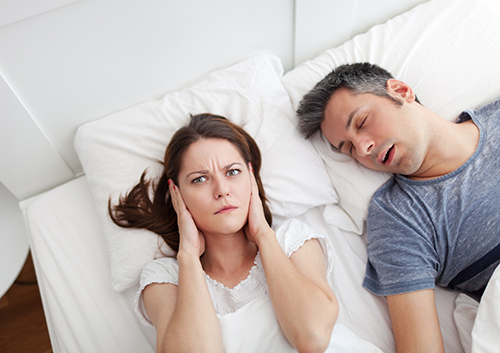Five Tips for Taking Tots to the Dentist
May 24th, 2025

Toddlers are notoriously balky about strangers. But their first dental visit should not be cause for fear and tears. Nor should you assume that getting your toddler to Daisy Mountain Dentistry is going to involve a full-blown tantrum or Mafia-style bribery. “Honey, don’t worry. We’ll go get ice cream after…” sort of defeats the purpose of making that first dental appointment.
These five tips will make your toddler’s trip to see Drs. Peter Vogel, Vijal Vadecha as fun as a stop at an amusement park.
1. Before you make a dental appointment for your child, take him or her on a ride-along to one of your dental appointments. Let your son or daughter experience the office and get the lay of the land. Toddlers don’t like surprises. But if your little one is already familiar with the big chair that goes up and down, the next time he or she will have no problem taking a seat.
2. About the big dental chair … well, it’s really an amusement park ride. See how it goes up and down? Toddlers love games, and turning the trip to the dentist into a game is among the oldest (and most successful) tricks in the parent playbook.
3. Positive reinforcement is a good thing. That's why Drs. Peter Vogel, Vijal Vadecha and our staff hand out cool toothbrushes or stickers to children after their appointment. A fun-colored toothbrush with a suction bottom is a good incentive to come back for another cleaning.
4. Timing is everything. Don’t take your child to the dentist an hour before the daily nap. Make the appointment with your child’s schedule in mind. This increases the chances of success.
5. A few days before the scheduled appointment, start reading your toddler bedtimes stories about what happens at the dentist. Dora the Explorer’s Show Me Your Smile, written by Christine Ricci, is a popular dental story that your child might relate to.
Sleep Apnea: What a Dentist Can Do
May 24th, 2025

You find yourself drowsy and irritable all day. Or you have trouble sleeping, and when you do, you snore loudly throughout the night punctuated with silent pauses where you aren’t breathing at all. Or your loved ones tell you that you’ve been keeping them awake with your snoring or frightening them awake when you gasp for breath. Whatever symptom may have brought you to the doctor, you’ve been diagnosed with obstructive sleep apnea, and now it’s time to get this sleep disorder under control.
Obstructive sleep apnea occurs when the tissue in the back of the throat relaxes, partially blocking the airway, or structural problems in the mouth and throat (such as enlarged tonsils or tongue) obstruct air flow. The tissue around the air passage vibrates with every breath causing those annoying snoring sounds. More dangerous, an obstructed airway means that there is not enough oxygen getting into the lungs. The struggle to breathe wakes us, interrupting the deep sleep we need to function. Untreated, the results of sleep apnea can range from drowsiness and irritability to a greater risk of high blood pressure, heart disease, and stroke. Luckily, there are several approaches to combatting this form of sleep apnea, including life style changes, surgery or breathing machines, and orthodontic appliances.
- Lifestyle Changes
Sleep apnea is more likely to affect those who are overweight, smoke, use alcohol, take certain medications, or sleep on their backs. If you can make changes in your lifestyle that will restore the quality of your sleep, this is a great first option.
- Surgery or Breathing Machines
Sometimes obstruction of the airway is caused by structural problems in the throat or mouth. Tissue can be reshaped or removed during surgery to widen and stabilize the breathing passage. Or you might be prescribed a machine such as a CPAP (continuous positive airway pressure) machine, which blows pressurized air through a tube and mask to keep the airway open during sleep.
- Oral Appliances
Drs. Peter Vogel, Vijal Vadecha can also be an important resource if you struggle with obstructive sleep apnea. Many people suffering from this disorder prefer an oral appliance for its effectiveness, comfort, and convenience. One common oral sleep appliance is designed to support your lower jaw in a forward position. This jaw movement increases the open space of your airway as you sleep. Other appliances can prevent the tongue from blocking the airway and obstructing air flow. These appliances resemble mouthguards and retainers, and, like them, are custom made just for you. We will recommend the type of appliance best suited to your needs, and will take a model of your mouth and teeth so that a lab can craft an appliance that will be a perfect fit. We will adjust it for comfort if necessary, instruct you on its use and care, and schedule follow up treatment to make sure the appliance is treating your sleep apnea as efficiently as possible.
Whether you opt for a change of lifestyle habits, a CPAP machine, surgery, or an oral appliance, it is important that you treat this sleeping disorder. Left untreated, obstructive sleep apnea can have many serious consequences. If you suspect you might have sleep apnea, talk to us during your next visit at our Anthem office. You deserve a good—and healthy—night’s sleep.
Spring Cleaning
May 7th, 2025

Just like that, it’s almost summertime. As the spring season ends, perhaps these lighter, brighter days are inspiring you to do a bit of last-minute spring cleaning. Or perhaps they’re not. No judgment here!
What we can recommend wholeheartedly is finishing the season with a clean, sparkling smile. And we have some bright ideas for you!
Refresh Your Cleaning Technique
Tooth brushing can become so automatic that we don’t think about the basics anymore. And suddenly, we’ve finished brushing in half the time we used to, and, hey, how long has that floss been sitting on the counter, anyway? We suggest some mindful cleaning for a healthier smile.
- Spend two minutes brushing, at least twice each day.
- Make sure you reach all the surfaces of your teeth, inside, outside, and on top of your molars.
- Use short, gentle brush strokes, covering a tooth or two at a time.
- Angle your brush to clean along the gum line. Plaque around the gums leads to irritation and inflammation, and is a common cause of gum disease.
- Use vertical strokes to clean the inside of your front teeth.
- Floss at least once each day.
Good Cleaning Requires Good Tools
Since we’re tidying up, let’s talk about some helpful cleaning tools. Is your toothbrush looking a bit—long in the tooth?
After three to four months of brushing, your toothbrush bristles start to break down. Frayed and matted bristles can’t clean as effectively as a toothbrush in top shape. Each change of season is a good time to remind yourself to change brushes.
And, while you’re shopping, remember:
- Soft bristles are almost always all any brusher needs. Even medium bristles can be abrasive to tooth enamel. And brush gently—scrubbing is also abrasive.
- If you use an electric toothbrush, those toothbrush heads need to be replaced, too! In fact, because these brushes often have shorter bristles, heads might need to be replaced every two to three months.
- Use fluoride toothpaste to clean and protect your teeth.
- Don’t forget the floss!
If you’re not a fan of your current floss, take another look at the dental aisle in your local store. There are lots of new flossing options out there just waiting to be sampled. If manual flossing is difficult, consider a water flosser. Drs. Peter Vogel, Vijal Vadecha can help you find just the right floss for your one-of-a-kind smile.
And speaking of your dental team . . .
Some Cleaning Jobs Require Professional Help
Dentists typically recommend a professional cleaning at our Anthem office twice a year to make sure you’re free from built up plaque and tartar. How does your dental team go about getting your teeth cleaner than you can get them at home? With special training and special tools.
- Plaque and tartar need to be removed from tooth enamel above and below the gum line to prevent cavities and gum disease, and tartar can only be removed by a dental professional. Your hygienist might use an ultrasonic scaler, a hand scaler, or both to gently scrape away sticky plaque and hard tartar.
- Teeth are polished with a gentle abrasive to remove surface stains. This can be done with a special toothpaste applied with a small rotating cup, or with an air polisher, which removes stains with a stream of fine abrasive powder, water, and pressurized air.
- An expert flossing will remove any remaining plaque from between the teeth.
Bonus: Your hygienist can point out spots you’ve been missing to help make your home brushing and flossing more effective.
Clean and Bright
Increasing daylight can brighten your mood—and so can a whiter smile! Over time, smiles get dimmer without our even noticing, thanks to tooth-staining foods and drinks, medications, smoking, or thinning enamel as we age. If you’re feeling self-conscious because your smile isn’t its sparkling best, consider a whitening treatment.
- Whitening Toothpastes
Whitening toothpastes use chemicals and mild abrasives to remove surface stains caused by foods, beverages, and smoking. If you’d like to give a whitening toothpaste a try, ask Drs. Peter Vogel, Vijal Vadecha for suggestions.
- Whitening Strips and Gel Trays
Whitening gels can be applied at home with strips or tray kits. These peroxide-based gels are stronger than the formulas used in toothpaste, but can be irritating. Talk to Drs. Peter Vogel, Vijal Vadecha to learn how to achieve the best and safest outcome with these products.
- Office Treatment
Whitening treatments at our Anthem office are generally faster, more effective, and last longer because this process uses a more powerful whitening agent. That’s why it should only be applied by a dental professional, who will examine and prepare your teeth, protect the surrounding gum tissue, and monitor your treatment throughout.
Spring’s coming to an end, but taking care of your dental health is always in season! A clean smile isn’t just a more confident smile, it’s a healthier one. Talk to your dentist for more tips to create your best and brightest smile at any time of year.
What happens if I don’t have my wisdom teeth removed?
May 1st, 2025

One of the things Drs. Peter Vogel, Vijal Vadecha and our team at Daisy Mountain Dentistry monitor during your dental appointments is the growth of your wisdom teeth, or third molars. Third molars generally begin to erupt between the ages of 17 and 25. Wisdom teeth may require removal for many reasons, including pain, infection, or growth issues. While not all patients need their wisdom tooth removed, problems can develop if removal is not performed.
Overcrowding
Many patients have smaller mouths and jaws, which do not allow room for the third molars to grow in properly. If these teeth do erupt, overcrowding can occur. Your teeth will begin to shift or overlap each other. Wisdom teeth that erupt after orthodontic care is completed can cause the teeth to shift and negate the work performed.
Impacted Wisdom Teeth
When wisdom teeth are impacted, they are trapped below your gum line. Impacted wisdom teeth can be very painful and may be prone to abscess and infection. The impaction can lead to decay and resorption of healthy teeth.
On occasion, if wisdom teeth are not monitored properly, their growth can shift parallel to the jaw line. They can also shift backward and eventually interfere with the opening and closing of your jaw.
Greater Potential for Decay
Even when wisdom teeth grow in properly, the location can make the teeth harder to care for. This in turn can lead to the growth of more bacteria, and create health issues later in life.
If you do not have your wisdom teeth removed, they will require continued monitoring. Wisdom teeth are just as subject to decay and other problems as the rest of your teeth. Those that appear above the gum surface can often be extracted at a dental office in a fashion similar to any other tooth extraction. Impacted teeth are normally handled by an oral surgeon.
Pain in the back of the jaw and swelling may indicated wisdom teeth that are beginning to rupture or are impacted. A simple set of X-rays will determine the extent and direction of growth. Please do not hesitate to discuss your concerns during your next visit our Anthem office. We will be happy to explain wisdom teeth, and potential removal, as it applies to your specific case.


